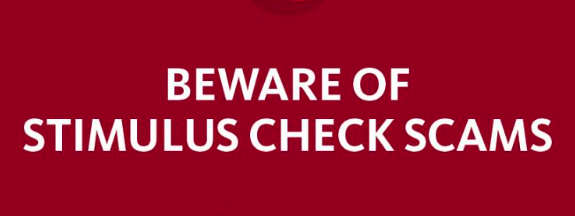
By Debbie Gregory.
As a public service to VAMBOA’s Veteran and Military Small Business Owners, we are bringing you this fraud/scam alert to keep you informed. Please be vigilant and do your homework to check out so that you are not a victim to grant fraud, load fraud and phishing.
From the Small Business Administration’s Office of Inspector General:
The Office of Inspector General recognizes that we are facing unprecedented times and is alerting the public about potential fraud schemes related to economic stimulus programs offered by the U.S. Small Business Administration in response to the Novel Coronavirus Pandemic (COVID-19).
The Coronavirus Aid, Relief, and Economic Security Act (CARES Act), the largest financial assistance bill to date, includes provisions to help small businesses. Fraudsters have already begun targeting small business owners during these economically difficult times. Be on the lookout for grant fraud, loan fraud, and phishing.
Scams and Fraud Schemes
Grants:
- SBA does not initiate contact on either 7a or Disaster loans or grants. If you are proactively contacted by someone claiming to be from the SBA, suspect fraud.
Loans:
- If you are contacted by someone promising to get approval of an SBA loan, but requires any payment up front or offers a high interest bridge loan in the interim, suspect fraud.
- SBA limits the fees a broker can charge a borrower to 3% for loans $50,000 or less and 2% for loans $50,000 to $1,000,000 with an additional ¼% on amounts over $1,000,000. Any attempt to charge more than these fees is inappropriate.
- If you have a question about getting a SBA disaster loan, call 800-659-2955 or send an email to disastercustomerservice@sba.gov.
- If you have questions about other SBA lending products, call SBA’s Answer Desk at 800-827-5722 or send an email to answerdesk@sba.gov.
Phishing:
- If you are in the process of applying for an SBA loan and receive email correspondence asking for PII, ensure that the referenced application number is consistent with the actual application number.
- Look out for phishing attacks/scams utilizing the SBA logo. These may be attempts to obtain your personally identifiable information (PII), to obtain personal banking access, or to install ransomware/malware on your computer.
- Any email communication from SBA will come from accounts ending with gov.
- The presence of an SBA logo on a webpage does not guarantee the information is accurate or endorsed by SBA. Please cross-reference any information you receive with information available at sba.gov.
Report Fraud
Report any suspected fraud to OIG’s Hotline at 800-767-0385 or online at, https://www.sba.gov/about-sba/oversight-advocacy/office-inspector-general/office-inspector-general-hotline.
Small business owners, including veteran and military owned small businesses are dealing with a multitude of challenges now. It is unfortunate and sad, that on top of everything else, there are people and groups out there with the goal of scamming or committing fraud. Unfortunately, this is the reality so please check everything and make sure you are sure that you are dealing with legitimate entities. It is better to be safe than sorry.











